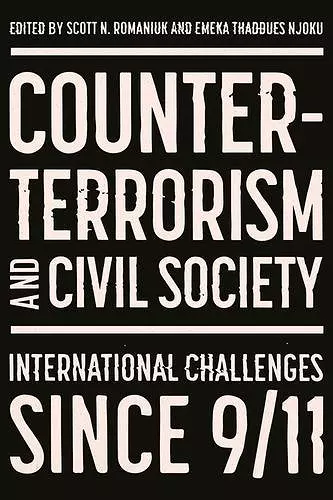Counter-Terrorism and Civil Society
Post-9/11 Progress and Challenges
Emeka Thaddues Njoku editor Scott N Romaniuk editor
Format:Hardback
Publisher:Manchester University Press
Published:7th Sep '21
Should be back in stock very soon

This book examines the intersection between national and international counter-terrorism policies and civil society in numerous national and regional contexts. The 9/11 terrorist attacks against the United States in 2001 led to new waves of scholarship on the proliferation of terrorism and efforts to combat international terrorist groups, organizations, and networks. Civil society organisations have been accused of serving as ideological grounds for the recruitment of potential terrorists and a channel for terrorist financing. Consequently, states around the world have established new ranges of counter-terrorism measures that target the operations of civil society organisations exclusively.
Security practices by states have become a common trend and have assisted in the establishment of ‘best practices’ among non-liberal democratic or authoritarian states, and are deeply entrenched in their security infrastructures. In developing or newly democratized states - those deemed democratically weak or fragile - these exceptional securities measures are used as a cover for repressing opposition groups, considered by these states as threats to their national security and political power apparatuses.
This timely volume provides a detailed examination of the interplay of counter-terrorism and civil society, offering a critical discussion of the enforcement of global security measures by governments around the world.
'This edited volume is the work to engage anyone seeking a critical understanding of how counter-terrorism practices are transforming state-society relations.'
Joshua Akintayo, Critical Studies on Terrorism
ISBN: 9781526157928
Dimensions: 234mm x 156mm x 21mm
Weight: 658g
344 pages